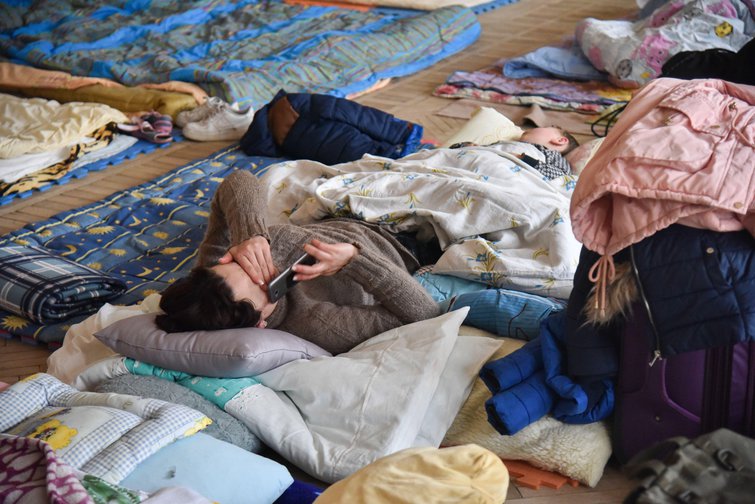openDemocracy asked the Department for Levelling Up, Housing and Communities (DLUHC), which is administering the scheme, about the technical and language issues with its application process.
The department did not deny the reports and confirmed that the process was being continually reviewed.
Applicants also pointed out that the requirement for both parents to provide documentation as part of their child’s visa application was blind to the reality that most were separated.
“Some fathers are on the frontline and there’s no way to reach them,” said Claire.
Both women said they had heard from other would-be sponsors that applicants had instead turned to Facebook groups to swap information in the absence of government advice.
Others have singled out the private company responsible for processing Ukrainians’ documentation for criticism.
TLSContact, which is ultimately owned by French multinational Teleperformance, had previously come under fire for promoting paid services to Ukrainians applying for visas and leaving them queuing for hours in the freezing cold at its application centres in Poland.
DLUHC would not say whether TLSContact had been given additional public money to administer parts of the Homes for Ukraine scheme.
Last year, a report by the Home Office’s own watchdog contained warnings that the company had the “sole focus” of making a profit, and a history of squeezing cash out of applicants.
The government has refused to release any data on how many Ukrainians have applied to its Homes for Ukraine scheme. More than 150,000 people have so far registered their interest in hosting refugees.
The sponsorship route is in addition to a scheme for Ukrainians with relatives already in the UK, with 18,600 visas granted under the family scheme so far. By comparison, Germany had taken in 240,000 Ukrainian refugees as of Wednesday, more than 12 times the UK figure.
A British government spokesperson said: “We are moving as quickly as possible to ensure that those fleeing horrific persecution in Ukraine can find safety in the UK, and our Homes for Ukraine scheme now allows those without family connections to come here.
“The Home Office has acted to streamline the visa application process so valid passport holders no longer have to attend in-person appointments before arriving, allowing us to welcome people faster.”






Comments
We encourage anyone to comment, please consult the oD commenting guidelines if you have any questions.